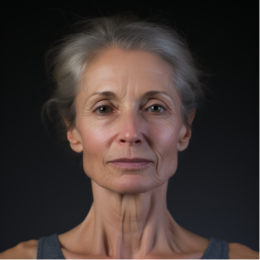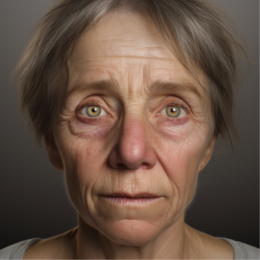7 Ways to Reduce Dementia Sundowning Symptoms

Dementia is a broad term for conditions that impair cognitive abilities in a way that impacts daily life. One prevalent symptom of certain types of dementia, like Alzheimer’s, is “sundowning.” As we progress in our understanding of this complex condition, research indicates that certain factors, such as alcohol consumption, could play a role in the onset and progression of dementia.
In this article, we will explore what dementia sundowning is, how alcohol affects dementia, and provide seven methods to help reduce dementia sundowning symptoms.
What Is Dementia Sundowning
Sundowning is a term used to describe an increase in confusion and agitation that occurs in the late afternoon and evening in some individuals with dementia.
Statistics:
- By 2050, nearly 14 million Americans will have Alzheimer’s disease, up from approximately 6.2 million in 2021.
- The Alzheimer’s Association indicates that approximately 20% of the 5.8 million Americans with Alzheimer’s disease experience increased confusion, anxiety, and agitation as the day ends (1).
The symptoms of sundowning can be distressing for both the person experiencing them and their caregivers. They may include restlessness, confusion, disorientation, suspicion, agitation, and mood swings. Furthermore, sundowning may lead to pacing, wandering, and difficulty sleeping, all of which can add to the challenges caregivers face.
What Are the Symptoms of Dementia
Dementia is characterized by symptoms that affect cognitive tasks such as memory, reasoning, and communication. Common symptoms include memory loss, particularly trouble remembering recent events or learning new information.
Individuals may also struggle with complex tasks or lose the ability to carry out tasks they previously found easy, like balancing a checkbook or following a recipe. Communication issues, such as difficulty finding the right words, handling complex sentences, or understanding speech, may arise. People with dementia often lose the ability to judge distances or see objects in three dimensions; misplacing items is also common. Personality changes can occur, such as increased agitation, depression, anxiety, or even apathy.
Additionally, individuals may experience confusion about time or place, often forgetting where they are, how they got there or failing to recognize familiar places. It’s essential to remember that dementia is progressive, meaning symptoms start slowly and gradually get worse over time.

What Causes Dementia
Dementia is caused by damage to brain cells that impair their ability to communicate with each other, affecting thoughts, behaviors, and feelings. Various things can cause this damage, including diseases like Alzheimer’s, vascular disorders, or chronic alcohol abuse.
How Does Alcohol Affect Dementia
Research has established a link between heavy alcohol consumption and an increased risk of dementia. Alcohol can directly cause brain damage, leading to conditions like Alcohol-related Brain Damage (ARBD), or indirectly through liver damage or stroke.
Furthermore, heavy drinking might lead to a faster decline in cognitive functions and could exacerbate the symptoms of dementia, including sundowning.
Statistics:
- The Lancet Public Health journal study indicates that of those presenting with early-onset dementia, 57% were heavy drinkers (2). Therefore, moderating alcohol consumption could be one way to reduce the risk and impact of dementia.
How to Reduce Dementia Sundowning Symptoms
- Maintain a Consistent Routine: Consistency can regulate the body’s internal clock and potentially reduce the symptoms of sundowning. Regular times for meals, medications, and bedtime can provide a sense of stability and predictability.
- Moderate Alcohol Consumption: Given the possible exacerbation of dementia symptoms due to alcohol, reducing or eliminating its consumption can be beneficial. Consulting a healthcare provider is recommended for advice tailored to the individual’s health condition.
- Promote Night-time Sleep and Daytime Activity: Encourage physical activities and exposure to natural light during the day to promote better sleep at night, thus reducing sundowning symptoms.
- Create a Calm Environment: During the late afternoon and evening, reduce noise, clutter, and the number of people in the environment. Calm music or quiet activities can help to lessen agitation and confusion.
- Monitor Diet: Certain foods and drinks, especially those containing caffeine or sugar, can increase anxiety and restlessness. A balanced diet can help improve overall health and potentially reduce dementia symptoms.
- Use Night Lights: Reduced lighting can increase confusion and agitation. Keeping the living areas well-lit in the evenings can help to mitigate sundowning symptoms.
- Seek Professional Help: Finally, if sundowning symptoms become difficult to manage, seeking the help of a healthcare professional or a support group can provide additional strategies and emotional support.
Conclusion
Sundowning can be one of the more challenging aspects of dementia for both patients and their caregivers. While there is currently no cure for dementia, understanding its potential causes and triggers, like alcohol consumption, can help manage its symptoms. Applying the strategies listed above can relieve those experiencing dementia sundowning and improve their quality of life. As always, it’s essential to seek advice from healthcare professionals to create a tailored plan for managing dementia symptoms.
References:
- Alzheimer’s Association (2023). Alzheimer’s Disease Facts and Figures.
- Schwarzinger, M., Pollock, B. G., Hasan, O. S. M., Dufouil, C., Rehm, J., & QalyDays Study Group. (2018). Contribution of alcohol use disorders to the burden of dementia in France 2008–13: a nationwide retrospective cohort study. The Lancet Public Health, 3(3), e124–e132.
- Alzheimer’s Association (2023). Alzheimer’s Disease Facts and Figures.





